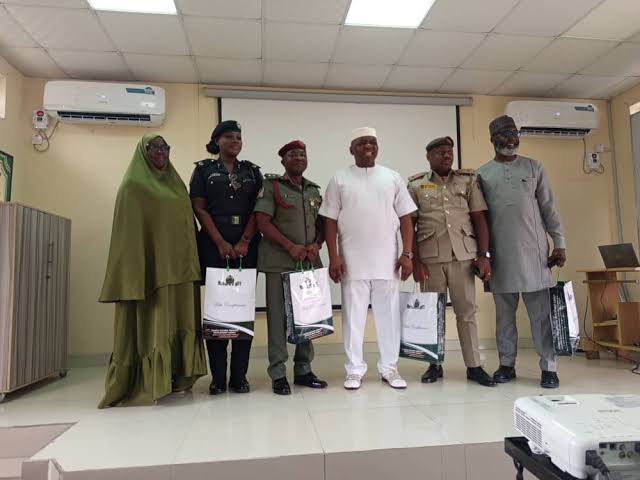Nigeria’s rice industry, once seen as a symbol of agricultural self-sufficiency, is now nearing collapse.
Over the weekend, the Competitive African Rice Forum – Nigeria Chapter (CARF-FSD Nigeria) sounded the alarm. The group warned that policy distortions, unchecked smuggling, and selective import waivers are crippling the entire value chain.
13 Million Metric Tonnes of Milling Capacity Wasted
The forum represents farmers, millers, processors, marketers, NGOs, and development partners. According to them, more than 13 million metric tonnes of local milling capacity now lies idle.
They traced the crisis to July 2024. That month, the Federal Government granted a 180-day duty waiver on key food imports, including husked brown rice. The move was meant to ease food inflation but had unintended consequences.
“The waiver undermined over a decade of investment in local rice production,” said Peter Dama, Chairman of CARF-FSD Nigeria. “Paddy demand collapsed almost overnight. Many mills shut down or drastically reduced operations.”
Communities across major rice-producing states have been hit hard. These include Kebbi, Kano, Ebonyi, Plateau, Nasarawa, Jigawa, Ekiti, Benue, Akwa Ibom, and Adamawa.
“Youth employment is gone. Women-led processing clusters have disappeared,” Dama added. “This is not just an economic crisis. It’s a looming social disaster.”
The group also expressed concern about rising smuggling. According to them, large volumes of substandard rice are flooding Nigeria through porous borders.
“Smuggling has erased confidence from the market,” said Halima Yusuf, a rice processor in Kano. “We’re competing with criminals, not fellow farmers.”
CARF-FSD Nigeria warned that smuggling now poses a national security risk. Criminal networks are expanding their influence in many border communities.
As the 2027 elections approach, stakeholders fear that the collapse of the rice sector could trigger unrest. Rising rural discontent, youth job losses, and urban migration may weaken national stability.
“The loss of rural livelihoods threatens food security and political stability,” said Dr. Emeka Ogbonna, an agricultural economist based in Abuja.
Urgent Actions Needed
To reverse the decline, CARF-FSD Nigeria listed several urgent steps:
End selective import waivers and enforce fair, time-bound trade incentives
Treat rice as a strategic crop deserving consistent protection
Strengthen the Nigeria Customs Service and deploy rapid-response border units
Create a national rice buffer stock to stabilize prices
Support irrigation, mechanization, and access to affordable inputs
Launch public campaigns to restore consumer trust in Nigerian rice
“We’re not asking for favors. We’re asking for fairness,” Dama stressed. “The rice industry is not causing food inflation. It’s the most scalable solution.”
CARF-FSD Nigeria reaffirmed its commitment to partner with the government. The group believes that, if supported, the industry can drive rural development and create millions of jobs.
“But if neglected, it may become a trigger for widespread instability,” the group warned.
The message is clear: time is running out to save Nigeria’s rice industry.











